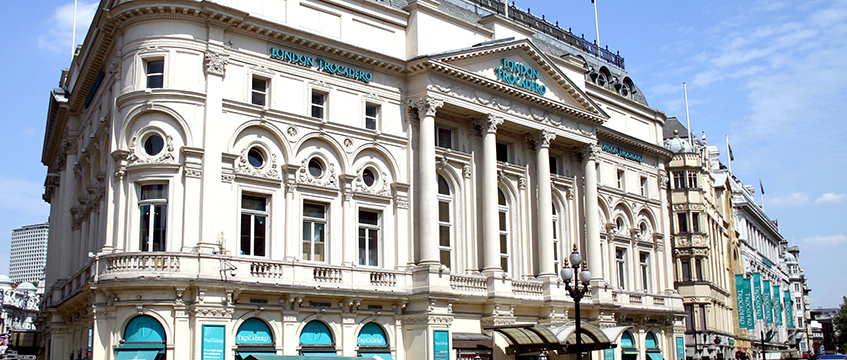Summary judgment – Costs – Non-party – Claimant applying to recover costs of successful proceedings against insolvent company from individual not party to proceedings – Whether non-party funding, benefitting from or controlling defence of proceedings – Application granted
The first defendant was the tenant of a building at 44-46, Rendezvous Street, Folkestone. It removed a section of wall bearing a mural painting known as “Art Buff” which was attributed to the street artist known as Banksy with the intention of selling it. The claimant subsequently brought a claimed for delivery up of the wall as the assignee of title to the mural and of the cause of action of the landlord and freehold owner of the building. The court granted the claimant summary judgment against the first defendant and ordered the defendant to pay most of the claimant’s costs of the proceedings and to pay the sum of £100,000 on account of those costs with 14 days: see [2015] EWHC 2556 (Ch); [2016] CH 253.
When the first defendant failed to pay any part of that sum, the claimant served a statutory demand on it in respect of that debt. The first defendant ceased trading shortly afterwards and the claimant lodged a proof of debt in the liquidation. However, it was clear that there would be no distribution to unsecured creditors such as the claimant.
The second and third defendants were the sons of the first defendant’s owner and director who died in 2012. Although his will left the shares in the first defendant to his sons, it was varied to leave the entire estate to his wife. Although the second and third defendants were parties to the main proceedings, the wife was not.
However, the wife had provided most of the funding for the underlying proceedings and the claimant applied for an order under section 51(3) of the Senior Courts Act 1981 that she should pay the costs of its claim against the first defendant. The wife was joined to the proceedings as fourth defendant solely on the question of costs.
Held: The application was granted.
(1) Although costs orders against non-parties were to be regarded as exceptional, in that context it meant no more than outside the ordinary run of cases where parties pursued or defended claims for their own benefit and at their own expense. The ultimate question was whether, in all the circumstances, it was just to make the order. Where the non-party not merely funded the proceedings but substantially also controlled or was to benefit from them, justice ordinarily required that, if the proceedings failed, he would pay the successful party’s costs. Generally speaking, where a non-party promoted and funded proceedings by an insolvent company solely or substantially for his own financial benefit, he should be liable for the costs if his claim or defence or appeal failed. Whilst any impropriety or the pursuit of speculative litigation might of itself support the making of an order against a non-party, its absence did not preclude the making of such an order. The non-party’s interest in the litigation did not have to be a direct financial benefit from the fruits of the litigation. It might be reputational or simply personal satisfaction from defeating the opponent or settling a score: Re North West Holdings plc [2001] EWCA Civ 68, Dymocks Franchise Systems (NSW) Pty v Todd [2004] UKPC 39; [2004] 1 WLR 2807, Vaughan v Jones [2006] EWHC 2123 (Ch) and Latimer Management Consultants Ltd v Ellingham Investments Ltd [2006] EWHC 3662 (Ch); [2007] 1 WLR 2569 applied. Globe Equities Ltd v Globe Legal Services Ltd [1999] BLR 232 and Byrne v Sefton Health Authority [2001] EWCA Civ 1904; [2002] 1 WLR 775 considered.
(2) In the present case, it was common ground that the principal factors relevant to the exercise of the court’s discretion related to the funding of, benefit from and control of defence of the proceedings. On the evidence, it was clear that the first defendant, as a company that was massively insolvent at all material times, would not have been able to fund the defence; nor would the second and third defendants other than to a modest extent. Accordingly, if the fourth defendant had refused to fund the defence of proceedings, the first defendant would not have defended the claim and the claimant would have obtained judgment in default. The proposal to donate all or part of the proceeds of sale of the mural to a charity set up by the second, third and fourth defendants was beneficial to the fourth defendant in that it would have benefitted the charity and would have been of emotional benefit to the fourth defendant because of her interest in the charity and its objects. It would also have been of financial benefit to her in that it would have reduced the need for her to make future donations to the charity. Furthermore, it would have been of reputational benefit to the fourth defendant which was to be inferred from the facts that the removal of the mural had attracted adverse publicity and she had acted as spokeswoman for the defendants in relation to the court proceedings.
(3) In all the circumstances, this was an exceptional case and it was just to make an order for costs against the fourth defendant. However, the claimant would have incurred costs down to service of the claim form and particulars of claim even if the first defendant had not defended the proceedings, Therefore, the fourth defendant would be ordered to pay the claimant’s costs incurred from the date on which the first defendant filed its acknowledgement of service.
Jamie Carpenter (instructed by Boodle Hatfield LLP) appeared for the claimant; Romie Tager QC (instructed by Brook Martin & Co) appeared for the fourth (costs) defendant.
Eileen O’Grady, barrister
Click here to read transcript: The Creative Foundation v Dreamland Leisure Ltd and others









